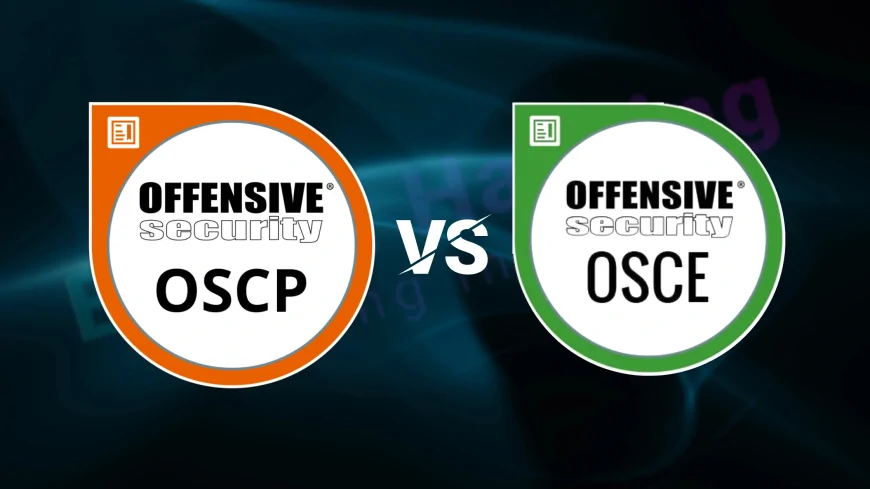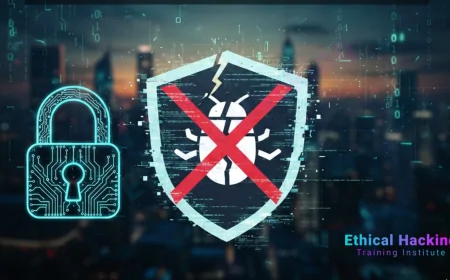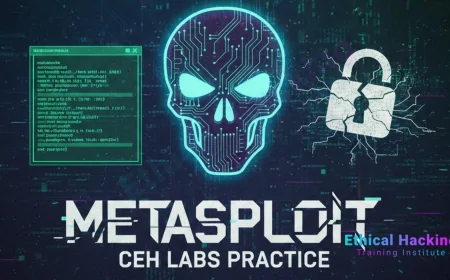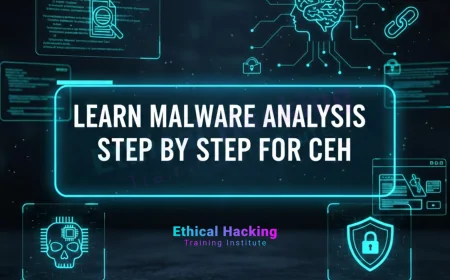What Is the Difference Between OSCP and OSCE Certifications? Key Comparisons and Which One to Choose in 2025
Understanding the difference between OSCP (Offensive Security Certified Professional) and OSCE (Offensive Security Certified Expert) certifications is essential for cybersecurity professionals aiming to advance their careers. This blog compares the two certifications in terms of exam format, syllabus, difficulty, prerequisites, career benefits, and salary trends to help you decide the best path for your penetration testing journey.

Table of Contents
- What Is OSCP Certification?
- What Is OSCE Certification?
- Exam Structure: OSCP vs OSCE
- Syllabus Comparison
- Prerequisites: Which Certification Is Right for You?
- Career Benefits and Job Roles
- Salary Trends
- Why Choose OSCP Over OSCE, or Vice Versa?
- Conclusion
- Related Resources
- Frequently Asked Questions (FAQs)
When diving into the world of cybersecurity certifications, especially penetration testing, two certifications often come up for discussion: OSCP (Offensive Security Certified Professional) and OSCE (Offensive Security Certified Expert). Both certifications are offered by Offensive Security, a leading organization known for practical, hands-on training in ethical hacking and penetration testing. However, they cater to different skill levels and career goals.
In this detailed blog, we will compare OSCP and OSCE certifications by exploring their exam structure, difficulty level, syllabus, prerequisites, career benefits, and salary prospects. This comparison will help you decide which certification aligns with your professional aspirations.
What Is OSCP Certification?
The OSCP (Offensive Security Certified Professional) is a foundational certification designed for cybersecurity professionals who want to demonstrate practical penetration testing skills. OSCP is often considered the industry standard for ethical hackers starting their journey.
Key Features of OSCP:
-
Hands-on, lab-based training focused on penetration testing techniques.
-
24-hour practical exam involving multiple machines to exploit.
-
Emphasizes a step-by-step methodology and report writing.
-
Covers topics like network scanning, exploitation, privilege escalation, and post-exploitation.
-
Ideal for beginners to intermediate-level professionals in penetration testing.
What Is OSCE Certification?
The OSCE (Offensive Security Certified Expert) is an advanced certification aimed at professionals who want to demonstrate expert-level offensive security skills. It builds on the OSCP foundation but dives deeper into advanced exploitation techniques and real-world scenarios.
Key Features of OSCE:
-
Focus on advanced penetration testing, exploit development, and bypass techniques.
-
Exam duration is typically 48 hours, featuring complex challenges.
-
Requires deep understanding of buffer overflows, web application attacks, and evasion methods.
-
Designed for experienced professionals seeking to enhance their offensive security skill set.
Exam Structure: OSCP vs OSCE
| Feature | OSCP | OSCE |
|---|---|---|
| Exam Duration | 24 hours practical exam | 48 hours practical exam |
| Exam Format | Penetration testing of multiple targets | Advanced exploitation and evasion tasks |
| Report Submission | Required detailed exam report | Required detailed exam report |
| Pass Criteria | Score of 70/100 or more | More stringent; varies with challenge |
| Difficulty Level | Beginner to intermediate | Advanced |
Syllabus Comparison
OSCP Curriculum Includes:
-
Information gathering and scanning.
-
Vulnerability analysis.
-
Buffer overflow exploitation basics.
-
Web application attacks.
-
Password attacks and privilege escalation.
-
Client-side attacks.
-
Writing penetration test reports.
OSCE Curriculum Includes:
-
Advanced buffer overflow techniques.
-
Exploit development and debugging.
-
Advanced web attacks and bypasses.
-
Client-side exploitation.
-
Evading antivirus and detection.
-
Network pivoting and tunneling.
Prerequisites: Which Certification Is Right for You?
-
OSCP: No formal prerequisites. Recommended basic knowledge of networking, Linux, and Windows operating systems.
-
OSCE: Requires completion of OSCP or equivalent experience in penetration testing and exploit development.
Career Benefits and Job Roles
OSCP Certification Opens Doors To:
-
Penetration Tester
-
Security Analyst
-
Vulnerability Assessor
-
Junior Ethical Hacker
OSCE Certification Enables:
-
Senior Penetration Tester
-
Exploit Developer
-
Security Consultant
-
Red Team Specialist
Salary Trends
According to industry reports in 2025, professionals holding OSCP certifications can expect an average salary ranging between $70,000 to $100,000 per year, depending on experience and location. OSCE certified experts typically command higher salaries, often between $100,000 and $140,000 annually due to their advanced skills.
Why Choose OSCP Over OSCE, or Vice Versa?
-
Choose OSCP if you’re starting your penetration testing career and want a solid foundation.
-
Opt for OSCE if you have OSCP certification or equivalent experience and want to specialize in advanced exploitation techniques.
Conclusion: OSCP vs OSCE – Which Certification Should You Pursue?
Both OSCP and OSCE are prestigious certifications that hold significant value in the cybersecurity domain. The choice depends on your current skill level and career goals:
-
OSCP is best for those looking to break into ethical hacking with a practical, hands-on exam.
-
OSCE is suited for seasoned professionals aiming to demonstrate expert-level offensive security abilities.
Investing in either certification will enhance your penetration testing skills and boost your career prospects in cybersecurity.
Related Resources
-
Explore ethical hacking training courses to prepare for OSCP and OSCE.
-
Download sample exam reports and practice labs for better hands-on experience.
-
Learn more about career paths in penetration testing and ethical hacking.
FAQs
What is OSCP certification?
OSCP is a foundational ethical hacking certification focused on hands-on penetration testing skills and a 24-hour practical exam.
What is OSCE certification?
OSCE is an advanced certification emphasizing expert-level exploit development, advanced penetration techniques, and a 48-hour exam.
Which certification is harder: OSCP or OSCE?
OSCE is considered more difficult due to its advanced content and longer exam duration.
Can I take OSCE without OSCP?
While OSCP is recommended before OSCE, experienced professionals with equivalent skills can attempt OSCE.
What topics does OSCP cover?
OSCP covers network scanning, vulnerability assessment, buffer overflows, web attacks, and report writing.
What topics are included in OSCE?
OSCE includes advanced buffer overflow techniques, exploit development, bypasses, and evasion tactics.
How long is the OSCP exam?
The OSCP exam is 24 hours long.
How long is the OSCE exam?
The OSCE exam lasts 48 hours.
Is report writing required in both exams?
Yes, both OSCP and OSCE require detailed exam report submissions.
What jobs can I get with OSCP certification?
Jobs include penetration tester, security analyst, and vulnerability assessor.
What jobs can I get with OSCE certification?
Senior penetration tester, exploit developer, and red team specialist are common roles.
What is the average salary for OSCP holders?
Average salary ranges from $70,000 to $100,000 per year.
What is the average salary for OSCE holders?
Average salary ranges from $100,000 to $140,000 annually.
Is OSCP suitable for beginners?
Yes, OSCP is ideal for beginners and intermediate professionals.
Is OSCE suitable for beginners?
No, OSCE is intended for advanced professionals.
Can OSCP help me get into cybersecurity?
Yes, it provides a solid foundation in ethical hacking and penetration testing.
Does OSCE focus on exploit development?
Yes, it specializes in advanced exploit development and evasion.
How do OSCP and OSCE exams differ?
OSCP has a 24-hour exam focusing on penetration testing, while OSCE’s 48-hour exam covers advanced offensive security skills.
What prerequisites do I need for OSCP?
Basic knowledge of networking, Linux, and Windows is recommended.
What prerequisites do I need for OSCE?
Completion of OSCP or equivalent experience is generally required.
Can OSCP certification lead to higher-paying jobs?
Yes, it significantly improves job prospects and salary potential.
Does OSCE certification increase career opportunities?
Yes, it opens doors to senior and expert roles in cybersecurity.
Are OSCP and OSCE certifications recognized globally?
Yes, both are highly respected worldwide.
How should I prepare for OSCP?
Practice hands-on labs, study penetration testing methodologies, and prepare detailed reports.
How should I prepare for OSCE?
Focus on advanced exploit development, buffer overflows, and evasion techniques.
Is the OSCP exam open book?
Yes, you can refer to your notes and tools during the OSCP exam.
Is the OSCE exam open book?
Yes, but preparation is key due to the advanced challenges.
How often can I retake OSCP or OSCE exams?
Both allow retakes but policies vary; retake fees apply.
Where can I find official OSCP and OSCE training?
Official courses are offered by Offensive Security through their website.
Do OSCP and OSCE certifications expire?
Currently, OSCP and OSCE certifications do not expire, but it is advisable to stay updated with skills.
What's Your Reaction?
 Like
0
Like
0
 Dislike
1
Dislike
1
 Love
0
Love
0
 Funny
0
Funny
0
 Angry
0
Angry
0
 Sad
0
Sad
0
 Wow
0
Wow
0


















